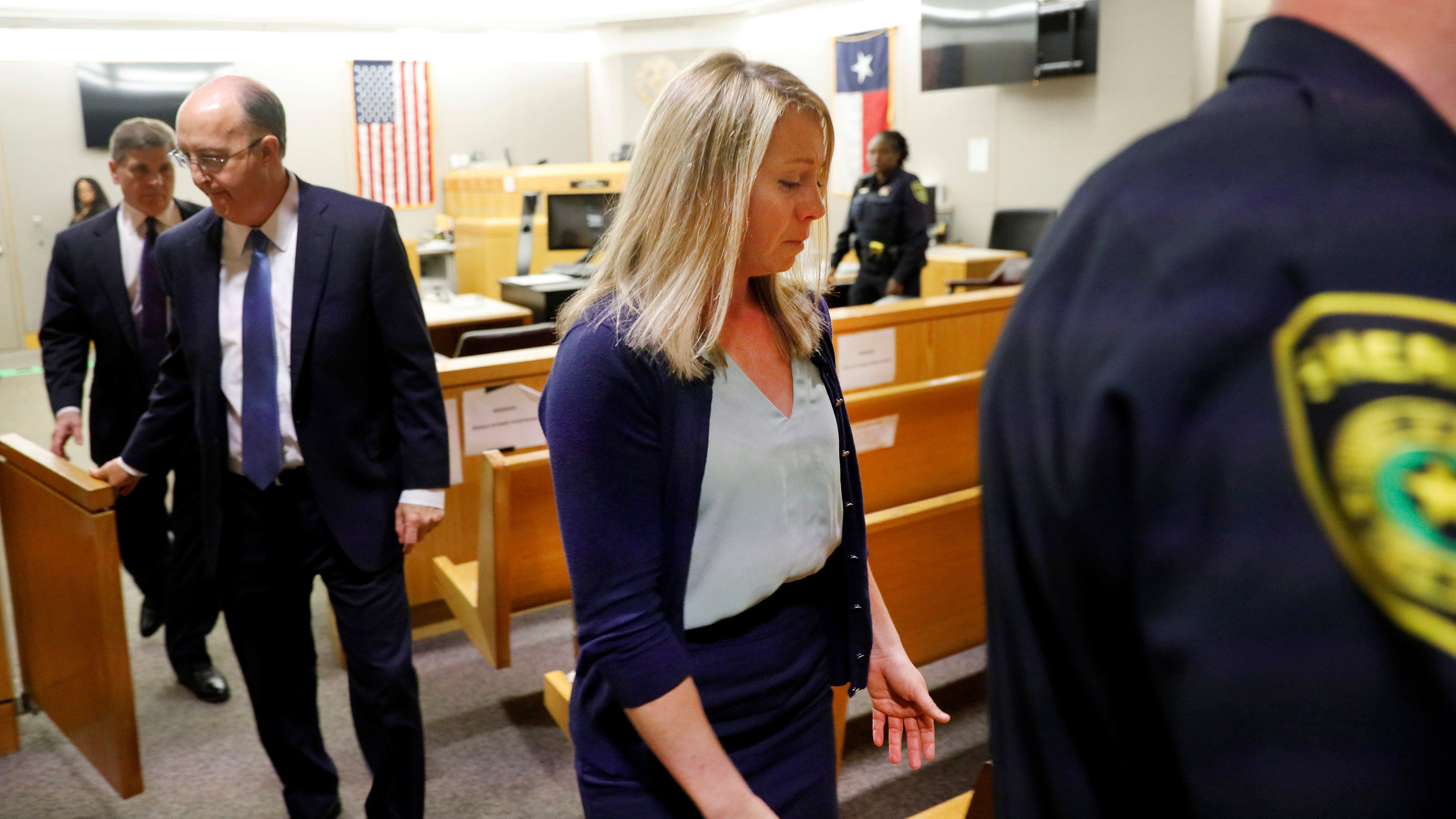Amber Guyger was sentenced to 10 years in prison last week for the murder of Botham Jean, an unarmed Dallas man whom Guyger fatally shot after believing he was an intruder in her home. In reality, she had entered the wrong apartment. Jean, a 26-year-old Harding University graduate and accountant, was black. Guyger was a white police officer.
Protestors cried, “no justice, no peace” as Guyger’s sentence was announced at the Dallas County Criminal Justice Center on Wednesday, Oct. 2. Several criticized the 10-year sentence as “a slap on the wrist.” While many saw Guyger’s indictment for murder as a victory in light of the history of lighter charges for police in instances of brutality against minorities, many others criticized the sentence as injustice.
Amber Guyger returned home from work as a Dallas police officer on Sept. 6, 2018. She entered the wrong apartment after parking in the fourth floor parking lot instead of her own, and followed the path to the apartment which correlated to hers. Botham Jean, the actual resident of the apartment, was watching television and eating vanilla ice cream when Guyger entered and believed he was an intruder. As he stood up, Guyger fatally shot him twice before realizing she was in the wrong apartment.
Botham Jean was born in St. Lucia before moving to the United States to attend Harding University, where he was heavily involved in singing groups, social clubs and ministry. After graduating, he began working as an accountant in Dallas for PricewaterhouseCoopers and led singing at the Dallas West Church of Christ.
When news broke of Jean’s death in 2018, protesters marched throughout Dallas to criticize the Dallas Police Department’s investigative methods in the case and ensure justice for Jean.
After Guyger’s sentence was announced last Wednesday, Botham Jean’s 18-year-old brother addressed Guyger and the courtroom with a surprising act of grace which made headlines.
“If you truly are sorry—I know I can speak for myself—I forgive you,” Brandt Jean said before asking the judge if he could hug Guyger. The two shared an emotional embrace as tears were heard throughout the courtroom.
Brandt Jean was later asked about his reasoning for forgiving Guyger.
“Each and every one has steps to get towards actually forgiving,” Brandt Jean said. “I probably went through those faster than other people. If you are trying to forgive her, understand that she is a human being.”
With praise for Brandt Jean’s act of forgiveness came a call for justice and reform. Botham Jean’s mother, Allison, reiterated this point.
“I don’t want the community to be mistaken by what [happened] in the courtroom,” Allison Jean said. “Forgiveness for us as Christians is healing for us, but… there are consequences. It does not mean that everything else we have suffered has to go unnoticed. We’re leaving Dallas this week, but you all must live in Dallas and you all must try to make Dallas a better place.”
Activist Omar Suleiman spoke Wednesday at the rally outside the courthouse about the need for police reform in light of forgiveness.
“If you are going to amplify the grace of Brandt Jean, then you better amplify the voice of his mother, who said only a few minutes after that that we need to continue to seek reform of the Dallas Police Department,” Suleiman said. “We do not see grace and accountability in contradiction.”Another twist in the case came on Friday, Oct. 4, when Joshua Brown, Botham Jean’s neighbor and key witness in the trial, was fatally shot at his apartment complex. However, Dallas police officials revealed on Tuesday, Oct. 7, the murder was unrelated to Jean’s case. Instead, it was a drug deal gone wrong, with one suspect in custody and two at large.












Be First to Comment